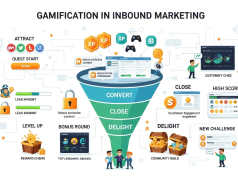The landscape of content marketing has transformed dramatically with artificial intelligence entering the creative workspace. Modern marketers face unprecedented opportunities to scale their content production while maintaining quality and authenticity.
This shift brings both promise and responsibility. The tools available today can generate compelling copy, analyze audience preferences, and optimize content performance at speeds previously unimaginable. However, success depends entirely on how these capabilities are wielded.
The Foundation of Ethical AI Content Strategy
Building trust remains the cornerstone of effective inbound marketing. When artificial intelligence becomes part of your content creation process, transparency becomes more crucial than ever before.
Your audience deserves honesty about the methods behind your content. This doesn’t mean revealing every technical detail, but rather maintaining authentic communication that reflects your brand values consistently.
Smart marketers recognize that AI serves as a powerful assistant, not a replacement for human insight and creativity. The most successful campaigns combine artificial intelligence efficiency with genuine human understanding of customer needs and market dynamics.
Balancing Automation with Authenticity
The temptation to fully automate content creation grows stronger as AI tools become more sophisticated. Yet the most effective approach involves strategic collaboration between human expertise and artificial intelligence capabilities.
Consider your brand voice as sacred territory. While AI can help generate ideas and draft initial content, your unique perspective and industry knowledge should guide every piece that reaches your audience.
Authentic storytelling requires emotional intelligence that current AI systems cannot replicate. Your personal experiences, customer interactions, and industry insights create the narrative threads that truly resonate with readers.
Quality Control in the AI Era
Maintaining editorial standards becomes more complex when artificial intelligence joins your content creation workflow. Establishing clear review processes ensures consistency and accuracy across all published materials.
Every AI-generated piece requires human oversight. This means fact-checking claims, verifying statistics, and ensuring the content aligns with your brand messaging and values.
Consider implementing a multi-stage review system where AI-assisted content undergoes the same scrutiny as traditionally created pieces. This approach maintains quality while leveraging efficiency gains from artificial intelligence tools.
Building Trust Through Transparent Practices
Your audience relationship depends on consistent honesty and value delivery. When integrating AI into your content strategy, focus on enhancing rather than replacing the human elements that make your brand unique.
Successful inbound marketing requires authentic connections with your target audience. Artificial intelligence should amplify your ability to serve customer needs, not create barriers between you and your community.
The goal remains unchanged: providing valuable, relevant content that helps your audience solve problems and achieve their objectives. AI simply offers new tools for accomplishing this mission more effectively.
Practical Implementation Guidelines
Start small when incorporating artificial intelligence into your content workflow. Choose specific tasks where AI can add immediate value without compromising your brand integrity or audience relationships.
Use AI for research assistance, outline generation, and initial draft creation. Reserve final editing, personal anecdotes, and strategic messaging for human oversight and input.
Monitor performance metrics closely to understand how AI-assisted content resonates with your audience compared to traditional creation methods. This data guides future decisions about where and how to deploy artificial intelligence tools.
Measuring Success Responsibly
Traditional content marketing metrics remain relevant in the AI era. Focus on engagement quality, conversion rates, and long-term relationship building rather than purely volume-based measurements.
Track how your audience responds to different types of AI-assisted content. This feedback loop helps refine your approach and ensures artificial intelligence enhances rather than diminishes your marketing effectiveness.
Remember that sustainable growth comes from building genuine connections with your audience. Artificial intelligence should support this goal, not replace the human elements that create lasting business relationships.
Looking Forward
The intersection of artificial intelligence and content marketing will continue evolving rapidly. Staying informed about new developments while maintaining ethical standards positions your brand for long-term success.
Focus on learning and adaptation rather than perfection. The most successful marketers embrace AI as a powerful tool while preserving the human elements that make their content truly valuable to their audience.
Your commitment to ethical practices today builds the foundation for sustained success as AI capabilities expand and become more integrated into marketing workflows across all industries.




